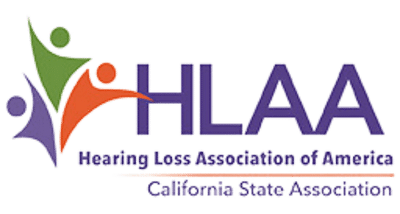By Heather Lehr
 One if the banes of living with hearing loss is the high cost of hearing aids. Advanced technology is great IF you can afford it. And so many of us can’t. Of the 30 million people with hearing loss in our country, only 20% have hearing aids. The number one reason for this? You guessed it – cost.
One if the banes of living with hearing loss is the high cost of hearing aids. Advanced technology is great IF you can afford it. And so many of us can’t. Of the 30 million people with hearing loss in our country, only 20% have hearing aids. The number one reason for this? You guessed it – cost.
Many of us in the hearing loss community are hoping that since the FDA recently approved over-the-counter (OTC) hearing aids, prices will drop. OTCs, on the market since October, are available without a prescription from a specialist. Prices for OTCs can be thousands of dollars lower than prescription hearing aids
Here’s the bummer – OTCs are specifically made for adults with mild-to-moderate hearing loss. They are not intended for people with severe to profound loss, which is leaves out a significant portion of our community. These folks will still need to go to an audiologist to get their high-powered instruments. BUT – there are those who argue that having lower cost options out there will create a downward pressure on the overall hearing aid market. So those of us with severe loss might just see some price relief in the future as well.
Before you go out and buy an OTC, there are a few things you need to think about. First of all – is an OTC right for your type of loss? Here is a great breakdown of how to decide if an OTC is right for you. Secondly – while you can just go to an OTC vendor like Best Buy and Walgreens and come home with a set of hearing aids, it might be best to see an audiologist for a comprehensive hearing test first. Often, this test is covered by insurance (check your policy before you go though). The audiologist can then explain the technologies you need, so you are not overwhelmed by the choices. Here is a handy shopping guide to help you with your purchase.
After talking to many audiologists and hearing aid vendors, we have learned that the most important feature of an OTC is – does the hearing aid have at least a 60 day return policy? Hearing aids are notoriously hard to fit. The right aid can improve your life greatly while the wrong one can even make things worse. You need time to tweak your new instrument and to test it in various settings. You also need time for your brain to adjust to the new input. And if at the end of the 60, (or hopefully 90) day trial, you are unhappy with your new aids, DO NOT feel shy about returning them and getting something else! Seriously. No one will think you’re a jerk – just a savvy tech consumer.
Right now, there are about a dozen manufacturers making OTC hearing aids. We can expect that some of these companies won’t stick around, while others will enter the market in the following years. It might be prudent to wait to purchase an OTC while the market has a chance to shake itself out a bit.
One last thought — beware the PSAP (personal sound amplification product). A PSAP is designed to make sounds louder for people with normal hearing. These instruments do not go through an FDA review like OTCs do, so their quality and efficacy have not been verified. Look carefully at the label on your hearing aid and make sure it clearly says OTC. If you want more guidance on the difference between OTCs and PSAPs, click here.



